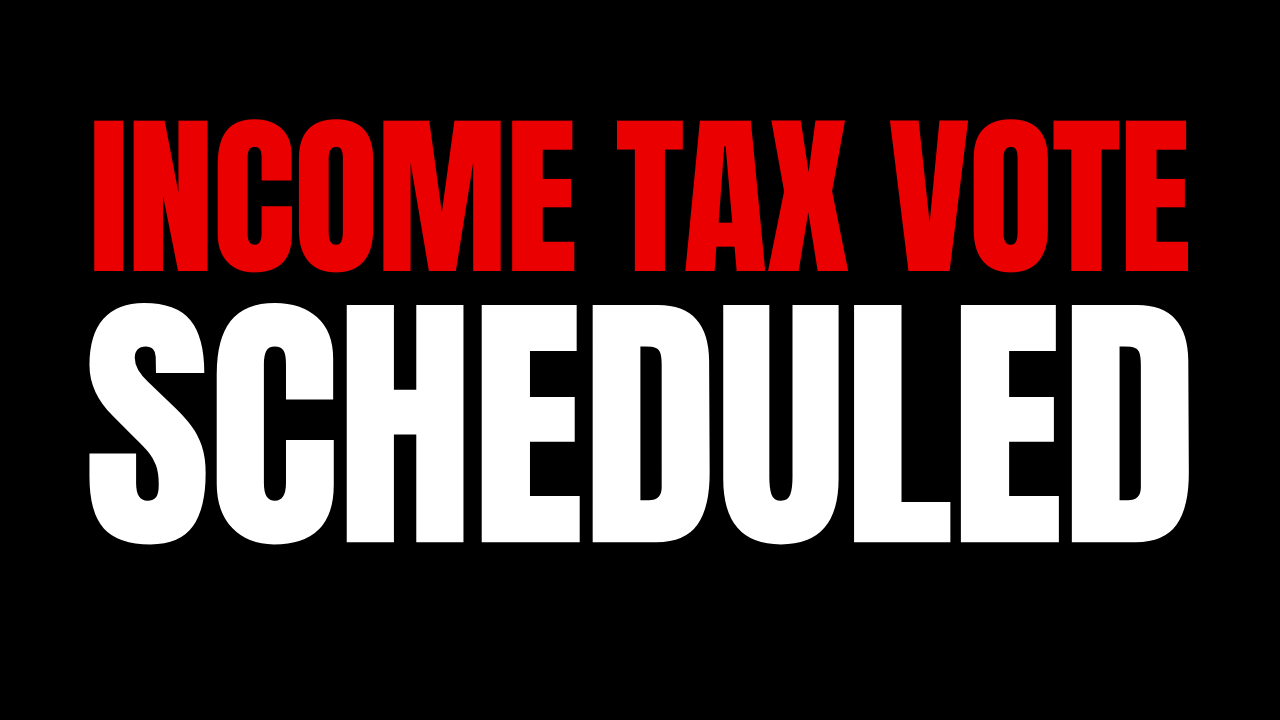The City of Seattle is on the verge of trying to set up a legal challenge to the state's constitutional prohibition on graduated income taxes. Besides the fact these elected officials are trying to set up a lawsuit in hopes that judges will overturn the law instead of following the normal democratic process of trying to change the law, there is a state statute that stands directly in their way. RCW 36.65.030 says: "Tax on net income prohibited - A county, city, or city-county shall not levy a tax on net income." So why exactly did the legislature pass that specific local income tax restriction?
To answer this question we need to go back to 1972 when the voters adopted HJR 21 by a vote of 50.2% to 49.8%. That constitutional amendment authorized combined county-city governments. One of the focal points of the campaign was whether the wording of the proposal would inadvertently allow a local government to enact an income tax. You can see this concern addressed in the voters' guide:
- Statement against: "HJR 21 . . . could allow a tax on personal income! Would allow unequal taxation!"
- Statement for: "No New Tax Source. HJR 21 does not authorize an income tax or any other new tax source for a combined city-county."
Showing the concern about whether a local income tax could move forward after HJR 21, the Attorney General was asked for an opinion in 1975. From that AGO:
"Question (8): Next you have asked: May a consolidated city-county impose an income tax?
Answer: This question arises by reason of so much of the final paragraph of Amendment 58 as provides that. 'The authority conferred on the city-county government shall not be restricted by the second sentence of Article 7, section 1, or by Article 8, section 6 of this Constitution.'
That sentence in turn, contains the so-called 'uniformity' clause which has caused our court, in past, to invalidate various legislative efforts to establish a graduated net income tax in this state. See, Culliton v. Chase, 174 Wash. 363, 25 P.2d 81 (1933); Jensen v. Henneford, 185 Wash. 209, 53 P.2d 607 (1936); and Power, Inc. v. Huntley, 39 Wn.2d 191, 235 P.2d 173 (1951), all holding that income is a form of property for the purposes of our constitutional limitations upon property taxation. With the elimination of this clause of Article VII, § 1 in the case of city-counties formed under Amendment 58, it thus follows that such governmental bodies, in the exercise of their legislative authority, could provide for a city-county graduated net income tax.
In so advising you, however, we should hasten to add that this possibility is far more theoretical than practical. Even though not subject to the uniformity clause of Article VII, § 1, any such tax would be subject to the one percent rate limitation (without voter approval) of Article VII, § 2 (Amendment 55) since this constitutional limitation upon property taxation, unlike the 'uniformity' clause has not been rendered inapplicable to charter city-counties by the terms of the provision of the constitution under which they are authorized to be formed."
This was the basis of SSB 4313 in 1984 to forcefully close any possibility that HJR 21 opened the door for a local income tax. From the bill report:
"City-county consolidation was authorized by the voters in 1972 when they approved Amendment 52 to the State Constitution. An Attorney General's Opinion in 1975 created some confusion over the powers possessed by a combined city-county. The Legislature had not enacted any statutes clarifying the constitutional authorization for combined city-counties. Summary: The following clarification are made . . . (2) A county, city, or combined city-county is prohibited from enacting an income tax . . ."
Though these details and the wording of RCW 36.65.030 should be clear enough for the City of Seattle to stop its income tax efforts, officials there claim they aren't proposing a tax on "net income" but instead "adjusted gross income." If your head just exploded from that attempted tax sleight of hand you're not alone. Since Seattle apparently doesn't understand that no means no lawmakers are ready to help make things crystal clear.
Rep. Brandon Vick has proposed HB 2212: Clarifying the prohibition of the imposition of a local income tax. According to the bill:
"A county, city, or city-county may not levy a tax on an individual's or household's personal income, whether net, gross, or adjusted gross income, capital gains income, or any other portion, or type of income. This prohibition, and the definition of income specifically, are to be construed broadly by any reviewing court to affect the policy of this state that there exist absolute clarity and certainty in state law that there is no local government authority to levy any form of income tax on individuals or households."
Maybe even Seattle officials can understand that.
Seeing how Governor Inslee has repeatedly said that he does not support an income tax (see most recently 3:43 mark of this interview) and many lawmakers have also said the same, it isn't unreasonable to expect lawmakers to fill some of the down time during the special session(s) to help make it clear once and for all that local governments do not have the power to impose an income tax of any kind.
Additional Information
Will Seattle try to adopt an illegal income tax?





